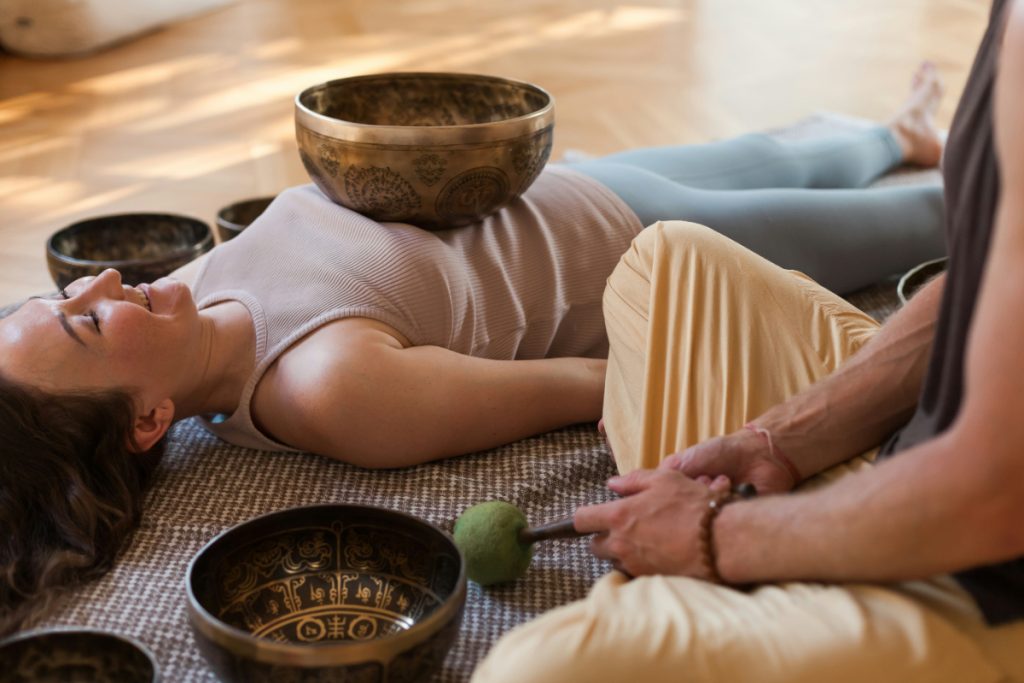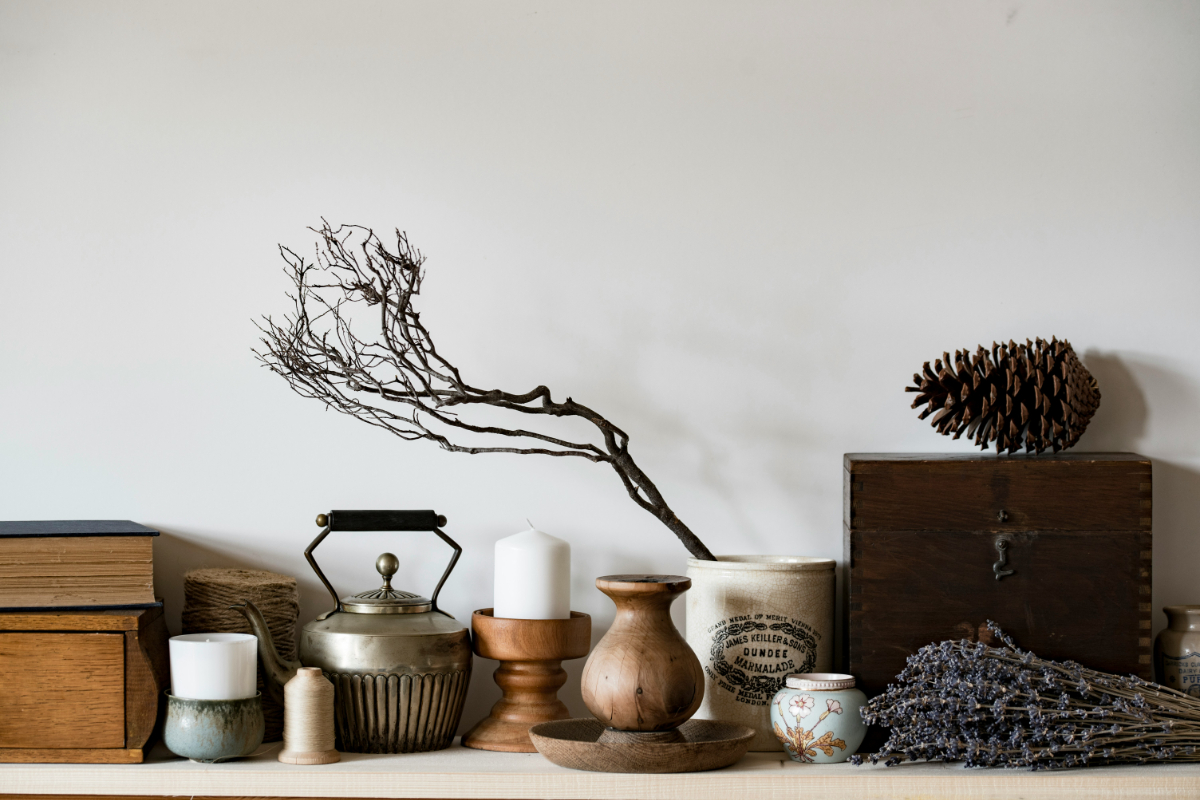Beginner’s Guide to Holistic Living: Simple Tips for a Healthier Lifestyle
Are you interested in living a more balanced and healthy lifestyle? If so, you may want to consider adopting a holistic approach to your daily routine. Holistic living is all about taking care of your entire self, including your mind, body, emotions, and soul. It’s about recognizing that these areas are interconnected and influence one another, and making conscious choices to support your overall well-being.
If you’re new to holistic living, it can be overwhelming to know where to start. But don’t worry, we’ve got you covered. In this beginner’s guide, we’ll cover everything you need to know about holistic living, from the basics to more advanced practices. You’ll learn about the benefits of holistic living, the different elements of a holistic lifestyle, and practical tips for incorporating holistic habits into your daily routine. So, whether you’re looking to reduce stress, improve your physical health, or enhance your spiritual connection, this guide will provide you with the tools and knowledge to get started on your holistic living journey.

Understanding Holistic Living
Holistic living is a lifestyle approach to health and wellness that considers the whole person, including physical, mental, emotional, and spiritual aspects. It emphasizes the interconnectedness of all these aspects and aims to create balance and harmony between them. In this section, we will explore the definition and principles of holistic living, as well as its historical roots.
Definition and Principles
Holistic living is based on the principle that the body, mind, and spirit are interconnected and that each aspect of a person affects the others. Holistic living is not just about treating symptoms but rather about addressing the underlying causes of health problems. It is about taking a proactive approach to health and wellness by adopting healthy habits and making lifestyle changes that promote balance and harmony.
Some of the key principles of holistic living include:
- The body has an innate ability to heal itself
- Prevention is key to maintaining health
- The whole person must be considered, not just the symptoms
- Lifestyle factors such as diet, exercise, and stress management play a crucial role in health and wellness
- The mind and body are interconnected, and emotional health is just as important as physical health
- A holistic approach to health and wellness should be personalized and tailored to each individual’s needs and goals
Historical Roots
The concept of holistic living has its roots in ancient healing traditions such as Ayurveda, Traditional Chinese Medicine, and Native American medicine. These traditions recognized the interconnectedness of the body, mind, and spirit and used natural remedies and lifestyle practices to promote health and wellness.
In modern times, the holistic approach to health and wellness gained popularity in the 1960s and 1970s as part of the counterculture movement. Today, holistic living is becoming increasingly mainstream as people seek natural and holistic approaches to health and wellness.
Overall, understanding the principles and historical roots of holistic living can help you adopt a more holistic approach to health and wellness. By taking a proactive approach to your health and addressing the underlying causes of health problems, you can achieve balance and harmony in all aspects of your life.
Foundational Practices of Holistic Living
To begin your journey towards holistic living, it’s important to understand the foundational practices that form the basis of this lifestyle. These practices focus on nurturing your mind, body, and spirit, and can help you achieve a state of balance and harmony in your life. In this section, we’ll explore three key foundational practices of holistic living: mindfulness and meditation, nutrition and diet, and physical activity and yoga.
Mindfulness and Meditation
Mindfulness and meditation are powerful tools for cultivating awareness and presence in your life. By practicing mindfulness, you can learn to be more present in the moment, and develop a greater sense of clarity and focus. Meditation can help you cultivate a sense of calm and relaxation, and can be a powerful tool for reducing stress and anxiety.
To begin practicing mindfulness and meditation, start by setting aside a few minutes each day to sit quietly and focus on your breath. You can also try guided meditation apps or classes to help you get started.
Nutrition and Diet
Nutrition and diet are essential components of holistic living, as they provide the foundation for good health and wellbeing. Eating a balanced, whole foods diet can help you feel more energized, reduce inflammation, and support optimal health.
To start eating a more holistic diet, focus on incorporating plenty of fruits, vegetables, whole grains, and lean proteins into your meals. Avoid processed foods, refined sugars, and artificial ingredients, and aim to eat a variety of nutrient-dense foods.
Physical Activity and Yoga
Physical activity and yoga are important components of holistic living, as they help you stay active and maintain flexibility and strength. Regular exercise can also help reduce stress, improve mood, and support overall health and wellbeing.
To begin incorporating physical activity and yoga into your life, start by finding an activity you enjoy, whether it’s running, hiking, swimming, or yoga. Aim to get at least 30 minutes of moderate exercise most days of the week, and consider incorporating yoga or other forms of mindful movement into your routine.
Integrating Holistic Approaches
When it comes to holistic living, integrating holistic approaches into your daily routine is key. By incorporating natural remedies and creating a personalized routine, you can achieve balance in your mind, body, and spirit.

Creating a Personalized Routine
Creating a personalized routine is all about finding what works best for you. Start by identifying your goals and what areas of your life you want to improve. Then, incorporate practices that align with those goals.
For example, if you want to improve your mental health, you might start by incorporating meditation into your daily routine. If you want to improve your physical health, you might start by incorporating yoga or other forms of exercise.
It’s important to remember that your routine should be flexible and adaptable. Don’t be afraid to try new things and adjust your routine as needed.
Incorporating Natural Remedies
Incorporating natural remedies is another important aspect of holistic living. Natural remedies can help support your body’s natural healing processes and promote overall wellness.
Some popular natural remedies include:
- Essential oils: Essential oils can be used for a variety of purposes, including relaxation, stress relief, and immune support.
- Herbal supplements: Herbal supplements can help support your body’s natural functions and promote overall health.
- Acupuncture: Acupuncture is a traditional Chinese medicine practice that involves inserting thin needles into specific points on the body to promote healing and balance.
When incorporating natural remedies, it’s important to do your research and consult with a healthcare professional if necessary. Not all remedies are safe for everyone, and some may interact with medications or other treatments you are currently using.
By integrating holistic approaches into your daily routine, you can achieve balance in your mind, body, and spirit. Remember to be patient and flexible as you explore different practices and remedies that work best for you.
Advancing Your Holistic Journey
Congratulations on taking the first step towards a more holistic lifestyle! As you continue on your journey, there are a few things you can do to deepen your understanding and connection to this way of life.
Continued Learning
One of the best ways to advance your holistic journey is to continue learning. There is always more to discover about holistic practices, and there are many resources available to help you do so. Consider reading books or taking courses on topics such as meditation, nutrition, and alternative medicine. You can also attend workshops or conferences to learn from experts in the field.
Remember to approach learning with an open mind and take what resonates with you. Not everything you learn will be applicable to your life, and that’s okay. The important thing is to keep an open heart and mind as you continue to grow and learn.
Community and Relationships
Another important aspect of holistic living is community. Humans are social creatures, and we thrive when we feel connected to others. Seek out like-minded individuals who share your values and interests. Join a yoga class, attend a meditation group, or volunteer for a local environmental organization. These are great ways to meet new people and form meaningful connections.
Additionally, it’s important to nurture the relationships you already have. Make time for your loved ones and prioritize your relationships. Healthy relationships are a key component of a happy and fulfilling life.
By continuing to learn and fostering connections with others, you can deepen your understanding of holistic living and enhance your overall well-being. Remember to take things one step at a time and enjoy the journey!






